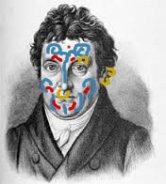As reconstructed in Wayne Martin’s recent lectures (which he gave in China in the summer and is now giving as an undergraduate module in Essex at the moment; of course, about half the people who attend are graduate students), Fichte’s philosophy contains a novel defence of private property, against the traditional Lockean defence and moving somehow towards Marx’s idea of free, non-alienated labour.
In Locke, private property is justified insofar as, in the state of nature, I own my body and its labour. If I work on the world, understood as owned in common, I ‘mix’ my labour with it, and hence am justified in laying claim to parts of it as my private property.
But of course Locke hasn’t really in any meaningful sense justified the existence of private property. His account is full of caveats: don’t take more than your due, don’t allow the fruits of your labour to spoil, etc. It is clear that Locke himself is far from convinced by his own story: even when our labour is freely exercised in the world, we still owe something to the others. So really the only thing we ‘own’ are our own bodies.
In Fichte, on the other hand, private property is justified insofar as it is only through my working on the world that I become a self. To become a self, I need to posit myself as myself, and in order to know that I have successfully done this, so the story somehow goes (obviously it is pretty complicated, but if you wish to know more about Fichte, I guess ‘consult your school library’), I need a part of the world that I can transform in line with how I think it ought to be, so it can act as a legitimate constraint on myself. Thus private property is justified insofar as I need to have it in order to become a self (understood as radically as: in order to become self-conscious).
But think back to the Locke defence. For Locke, private ownership of bits of the world was still troubling. Even when I mix my labour with it, there is a sense in which I still can’t appropriate everything. I still owe something to the other embodied subjectivities that I find with me in the world.
And this is maybe why, we might think: there is going to be no defence of private property, understood as totally private property, that I can do whatever I like with, that works insofar as it justifies my claims to do whatever I like with bits of the outside world that I lay claim to. There will always be caveats, society, rules and regulations. Our freedom vis a vis the objects in the world will always (at least, ‘justly’) be constrained by the other people in the world.
Except, my body. Axiomatically in the Locke story, this is the one thing (except my labour, but that’s not really a thing) that I 100%, unequivocally own. Of course it is kind of odd to suggest that the body is a thing that I own and not myself as-such. But, even if I am, in a sense, my body, there also exists my body as an object. And if, with Fichte, we agree that in order to become a self I need to transform something in the world that I own, then, well… what can we transform? Of course: our bodies!
So here we have a philosophical defence of body modification, plastic surgery, tatooing, piercing, whatever. Or even just fashion. It is only people who have made their bodies resemble themselves as they ideally conceive themselves to be who can be said to be selves, to be properly ‘self-conscious’ in a Fichtean sense.


Inside the “whatever” category we have all manner of experiences though. The self-harmer who cuts their flesh, for instance. Exposed to some retraumatisation or anxiogenic experience, opiods flood the body producing dissociative- even fugue- states. A coping mechanism design to protect the person from distress generates a new form of distress: “numbness” and a sense of unreality. The body is experienced in these states as Korper, never as Leib. It is the dissociative self-harmer who most closely resembles Locke and Fichte’s project.
I also think of Genesis P-Orrige. In a recent interview he said that body modification ‘started to be about the human species and its survival, realizing that the human body is an unfinished project and that as a species, at some point, we have to become inclusive and unified or we’re doomed’. Genesis P-Orrige used to consider body modification as art, as an extreme aesthetic art displaying the plasticity of the body… but now, having lost his wife, it reveals itself as an immortality project. He is brining his body into line with his wife’s. By embodying her, she doesn’t have to die.
I’m not trying to suggest that body modification, tattooing and so on are in some way pathological in essence. They are practices, totally essence-less, that have to be taken in their specificity. I want to suggest that this way of relating to the body as property is pathological, and that insofar as this is the motivation behind body practices then there is no way to keep them safe from their dark others.
Genesis P-Orrige interview: http://www.thefader.com/2012/03/12/respect-yourself-interview-with-genesis-breyer-p-orridge/#ixzz2NtK9Tivm